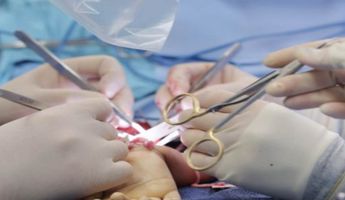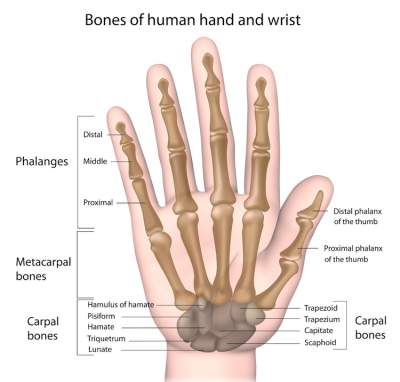Hand Surgery in Cyprus
Search and Compare the Best Clinics and Doctors at the Lowest Prices for Hand Surgery in Cyprus

Find the best clinics for Hand Surgery in Cyprus
No clinics available
Tunisia offers the best prices Worldwide
Price: $ 964

- Home
- Cyprus
WHY US?
At Medijump, we're making medical easy. You can search, compare, discuss, and book your medical all in one place. We open the door to the best medical providers worldwide, saving you time and energy along the way, and it's all for FREE, no hidden fees, and no price markups guaranteed. So what are you waiting for?

Free

Best Price

Widest Selection

Risk-Free
What you need to know about Hand Surgery in Cyprus
What Does the Procedure Involve?
There are several different types of surgery that can be carried out on the hand, depending on the cause of the problem, such as injury, disease, or congenital defect. Some of the main types of hand surgery are tendon repair, nerve repairs, closed reduction and fixation, joint replacement (arthroplasty), as well as surgical drainage and/or debridement. Most of these surgeries are performed under general anesthetic, but some can be done under local anesthetic.
How Long Should I Stay in Cyprus for a Hand Surgery Procedure?
Depending on which type of surgery you underwent, you may need to stay in the hospital overnight. The recommended length of stay is 7 to 10 days at Cyprus, but you should check with your surgeon when you can fly home. During your stay, your surgeon may schedule follow-up checkups where your condition is monitored and your stitches are removed.
What's the Recovery Time for Hand Surgery Procedures in Cyprus?
In general, you should be able to return to work within a week if your job does not require extensive use of your hands, but if your job is physically demanding and you need to use your hands a lot, it can take as long as 3 to 6 months before you can resume your job. The total recovery period may take around 6 months, but this depends on which type of surgery you underwent.
What sort of Aftercare is Required for Hand Surgery Procedures in Cyprus?
After the surgery, you may need to attend a physical therapy program to strengthen your hand and bring back your range of motion using isometric exercises. Remember to begin your normal routine gradually and take it easy on your affected hand to prevent any complications. You may need to schedule an appointment with your local doctor to check your healing progress.
What's the Success Rate of Hand Surgery Procedures in Cyprus?
Hand surgery is effective and highly successful. However, just like most surgeries, it carries the risk of bleeding and infection. Other side effects and risks include incomplete healing, blood clots, and loss of feeling or movement of the fingers or hand.
Are there Alternatives to Hand Surgery Procedures in Cyprus?
Surgery is only an option if other forms of treatment are unsuccessful. If you do not want to undergo surgery, you can take non-steroidal anti-inflammatory medications or cortisone injections and attend physical therapy.
What Should You Expect Before and After the Procedure
Before surgery, your range of motion, mobility, and productivity may be limited. After hand surgery, you should be able to do normal things again and to perform your activities efficiently.
Whilst the information presented here has been accurately sourced and verified by a medical professional for its accuracy, it is still advised to consult with your doctor before pursuing a medical treatment at one of the listed medical providers
No Time?
Tell us what you're looking for and we'll reachout to the top clinics all at once
Enquire Now

Popular Procedures in Cyprus
Prices Start From $553

Prices Start From $218

Prices Start From $218

Prices Start From $2,050

Recommended Medical Centers in Cyprus for procedures similar to Hand Surgery

- Interpreter services
- Translation service
- Religious facilities
- Medical records transfer
- Medical travel insurance
- Health insurance coordination
- TV in the room
- Safe in the room
- Phone in the room
- Private rooms for patients available

- Interpreter services
- Translation service
- Religious facilities
- Medical records transfer
- Medical travel insurance
- Health insurance coordination
- TV in the room
- Safe in the room
- Phone in the room
- Private rooms for patients available

- Interpreter services
- Translation service
- Religious facilities
- Medical records transfer
- Medical travel insurance
- Health insurance coordination
- TV in the room
- Safe in the room
- Phone in the room
- Private rooms for patients available
Hand Surgery in and around Cyprus
Cyprus is an island country in the Mediterranean Sea. The country is famous for its mineral wealth, splendid wines, dazzling beaches, and compelling culture. In addition, Cyprus is filled with classical ruins and century-old monasteries, and as the legendary birthplace of Aphrodite, it is also steeped in mythology. Due to its huge array of modern private medical centers equipped with excellent service, cutting-edge technology, and skilled doctors, Cyprus is also a thriving medical tourism destination. Foreign patients from all around the globe come to this country for a vast range of medical treatments, particularly bariatric surgery, cardiology, cosmetic and plastic surgery, and fertility treatments. Its spa and well-being resorts are also welcoming an increasing number of international medical tourists.
Popular Parts of Cyprus
The majority of tourists start their trip to Cyprus in Larnaca, it is the oldest city in Cyprus. It has a vast array of historical monuments, including Ayios Lazaros (the Church of Saint Lazarus), Stavrovouni Monastery, and Larnaca Medieval Castle. Besides its ancient buildings, Mackenzie Beach and Larnaca Marina are also popular among tourists. Not too far from Larnaca is Paphos, a charming city with exquisite natural beauty and all sorts of ancient ruins. The most popular attractions in this city include the Tombs of the Kings, the Old Town, Early Christian Basilica-St Paul’s Pillar, and Paphos UNESCO Archaeological Park. Nicosia, Cyprus’ capital, is also a popular destination.
Weather and Climate in Cyprus
Cyprus experiences a Mediterranean climate with four seasons and over 300 days of sunshine a year. The summer is long, warm, and dry, lasting from mid-May to mid-October. The winter starts in December and ends in February, bringing mild temperatures and more rain showers. Autumn and spring are short, but there is good weather.
Getting around in Cyprus
The main international gateway to Cyprus is Larnaca International airport. It serves international flights to many cities around Europe and the Middle East, including Kyiv, Abu Dhabi, London, and Moscow. In the south, the intercity bus system is reliable and great, but in the north, the bus services are often unreliable and do not seem to follow a timetable. Taxis are a safe and relatively inexpensive option. In the south, there are three types of taxi services: urban, trans-urban or interurban (shared and can be booked), and rural. In the north, taxis are only available in the main towns. Inside towns, buses are the best way to get around for those looking for a more affordable option. Taxis are more expensive, but they do offer more flexibility.
Tourist Visas in Cyprus
Nationals of EU countries, the United States, Australia, Canada, Britain, Iceland, Japan, and several other countries do not need a visa to visit and stay in Cyprus for up to 90 days. Other countries not listed in the visa-free agreement need to apply for a visa before entering Cyprus. It is best to consult the Cypriot Ministry of Foreign Affairs or contact the embassy to learn more about visa requirements.
Additional Information
- Local Currency: The euro (€) has been the official currency of Cyprus since 1 January 2008. The exchange rate from €1 is approximately US$1.17.
- Money & Payments: It is easy to find reliable ATMs in large towns and tourist areas. Major credit cards, such as Visa and MasterCard, are widely accepted in larger restaurants, shops, and hotels. However, if you plan to go to smaller towns or villages, it is best to ensure you have cash. Tipping is expected most of the time. Tip at least 10% of the bill, and at least 5% or round up to the nearest euro for taxi drivers.
- Local Language: Around 80% of Cypriots speak Greek as their first language, while Turkish is spoken by 10% of the population. English is widely spoken, especially in tourist areas.
- Local Culture and Religion: The main religion of Cyprus is Greek Orthodox, but Islam is the most prominent religion in the north.
- Public holidays: Some of the most celebrated holidays in Cyprus include Ohi Day, Christmas Day, Boxing Day, New Year’s Day, Epiphany, Clean Monday, Cyprus National Day, and Independence Day.
Popular Searches
- Plastic Surgery in Thailand
- Dental Implants in Thailand
- Hair Transplant in Thailand
- Breast Augmentation Thailand
- Gastric Sleeve in Thailand
- Gender Reassignment Surgery in Thailand
- Laser Hair Removal in Bangkok
- Botox in Bangkok
- Dermatology in Bangkok
- Breast Augmentation in Bangkok
- Coolsculpting in Bangkok
- Veneers in Turkey
- Hair Transplant in Turkey
- Rhinoplasty in Turkey
- Stem Cell Therapy in Mexico
- Rhinoplasty in Mexico
- Liposuction in Mexico
- Coolsculpting in Tijuana
- Rhinoplasty in Korea
- Scar Removal in Korea
- Gastric Sleeve in Turkey
- Bone Marrow Transplant in India
- Invisalign in Malaysia
- Plastic Surgery in the Dominican Republic
- Tummy Tuck in the Dominican Republic
- Plastic and Cosmetic Surgery in Poland
- Rhinoplasty in Poland
- Hair Implant in Poland
- Dental Implants in Poland
- IVF in Turkey
